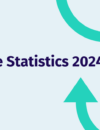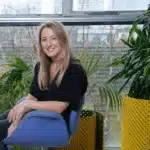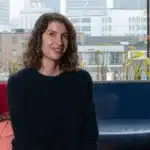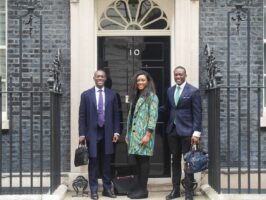
Today we’re speaking to our good friend and Founding Director of Foundervine, Izzy Obeng, about their work helping diverse entrepreneurs build start-ups from scratch.
Hi Izzy! First things first: tell us a little bit about yourself and what you do.
Sure! I’m the Founding Director of Foundervine, a training consultancy who specialise in start-up and scale-up acceleration programmes. Our focus is on helping more women and disadvantaged or underserved founders get into business and technology.
We very much target our programmes on young people growing up in the UK – and Africa – who are passionate about entrepreneurship but just don’t know where to start. Our model is to work with big, mission-driven companies to run training and development programmes for these young entrepreneurs.
To-date, we’ve worked with companies like PwC, Microsoft, and KPMG, in delivering start-up programmes, and we’re now expanding what we do to Africa. We’re scoping out a lot of programmes across continents.
What was it that led you to launch Foundervine? What did you see happening that led you to think “this really needs to exist”?
I was working in corporate at the time, in talent development consulting at KPMG. I was absolutely fed up of going to start-up events and being the only person of colour and one of very few women. I think what happens time and time again is that the start-up community can feel quite exclusive and shut off for people from communities who weren’t exposed to it.
So, it was a big mission of mine to correct some of the lack of representation we saw in start-up events – but more than that, it was so clear to me that when you are at idea stage as a Founder, or even pre-idea stage, there is very little support out there for you. There is a lot of support when you already have a business or product idea and you need support to either grow it, scale it or receive funding. But when you’re at the ‘idea stage’ like so many of us are, the barriers to entry are so high if you don’t have the right support or the right education in place. Foundervine exist to fix that.
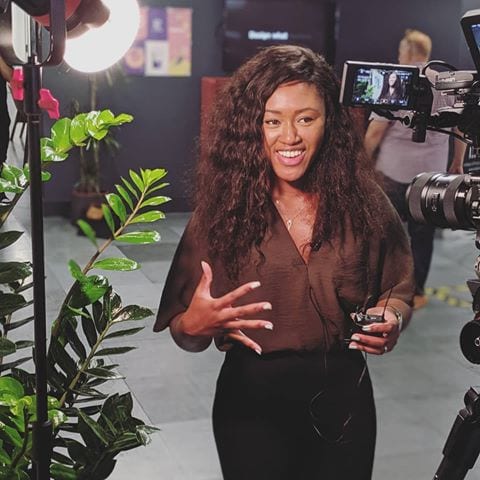
Talk us through some of the different challenges that people of colour or female founders might face when they’re at ‘idea stage’ in their business, which other founders might not.
So, quite a few things. I think the biggest one and the most complex to solve is that the structure of our education system is different for different groups of people. For a lot of young people, depending on where you grow up, the access you have to core skills learning is very varied.
If you grow up in an inner city area in North London, as I did, and go to a school which is not the best in terms of supporting its pupils, you don’t necessarily learn the skills that we know are essential to entrepreneurship later in life. Things like project planning, strategic thinking, communication, leadership, the ability to work as part of a team – all those skills that we really need to be teaching kids from a very young age.
“If you’re a young girl, you’re simply exposed to different opportunities than young boys, which in some cases means that you don’t actually build the confidence and self-esteem you need to create and ideate a project which goes on to become a business down the line.”
There are lots of structural challenges we face that we need to be addressing right at the core of the education system which mean that some people are more inclined to be entrepreneurs than others. But then as you grow up and perhaps go to university, we find that some of those same challenges start to manifest and become more pronounced. It’s been shown that women and people of colour are more likely to start social enterprises than the wider population – but social enterprises have historically received less support and funding. So we end up in a situation in which they don’t actually have the skills to make that sustainable.
When it comes to venture capital funding, only 1% of that funding goes to entrepreneurs of colour. Only 1% goes to all female founding teams; 10 pence in every pound to mixed gender founding teams, and 89 pence in every pound to all male founding teams. It’s such a shame because there are some brilliant female tech entrepreneurs out there. There are brilliant entrepreneurs of colour out there who are building fantastic tech ventures. Yet there are a series of complex challenges in terms of finding access to funding.
We know that entrepreneurs with warm introductions to investors are 10 times more likely to receive funding than those without, and you are more likely to get a warm introduction if you are in a certain group, let’s say. So, a big part of it is kind of addressing the challenges around how entrepreneurs find investors, how they get access to the funding that they need.
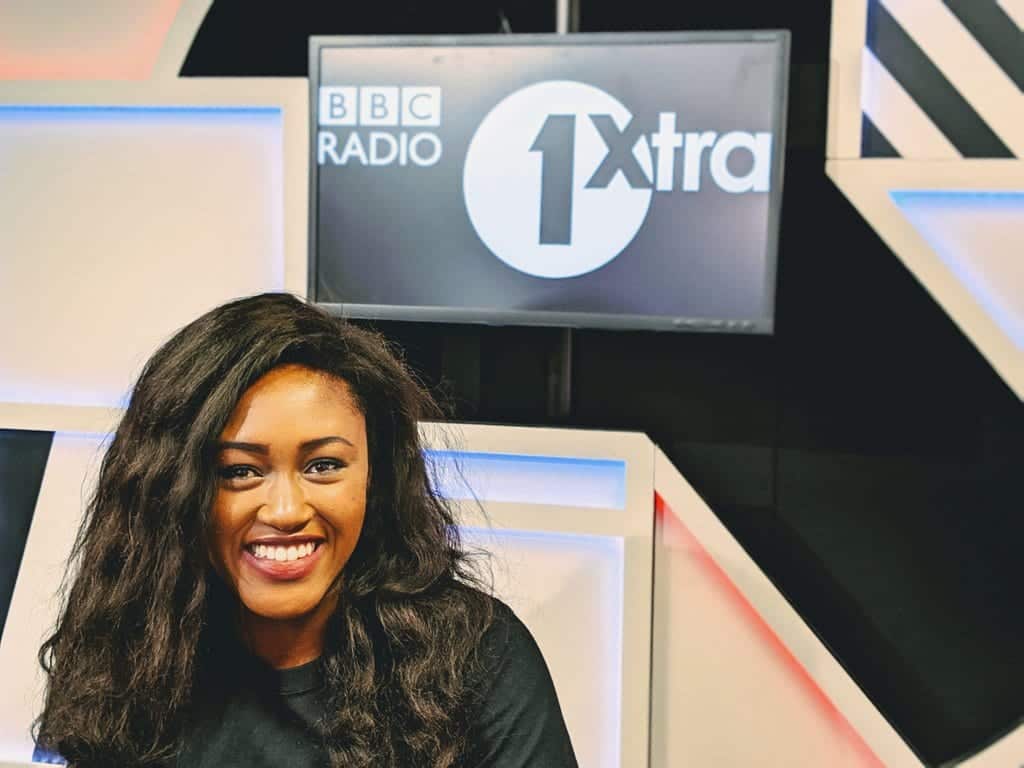
Then finally, we have to consider the strength of your network, and that’s why community has been so important to Foundervine. Your community is absolutely everything when you’re at the beginning of a business – aka when you have no money and you’re looking for the kind of advice that means you don’t make stupid decisions. A lot of people are very intimidated reaching out to people who are more established or people who may have the kind of knowledge that they need in order to launch a business. So a lot of our events are around boundary breaking. It’s about actually connecting people, and most importantly bringing forward voices in our communities who have successfully run businesses or who are in the funding space, so it doesn’t just look like a space owned exclusively by old white men. Our events help people realise that there are so many people of all backgrounds out there doing amazing things. It’s just not everyone gets the platforms that they need to inspire the next generation coming up.
What kind of changes – positive or negative – have you seen in the diversity and inclusion conversation since entering the industry?
What I see, which is really encouraging at the moment, is that the narrative is definitely changing positively. There are really prominent voices who are breaking the boundaries when it comes down to VCs, angel funding, education and access to networks. The challenge that we face is that they are all the same people. I feel like the community isn’t that big in terms of diverse voices, and in that way we all kind of know each other in some way… but it is growing. It is there.
I have a mentee, for example, a 16-year-old young woman called Tara, who’s absolutely incredible, and who was petrified of coming to one of my events. She didn’t know anything about business, entrepreneurship, or FinTech, and I made her come along to one of our programmes to see how inclusive and accessible it is. By the end of this three-day programme, Tara, who’s doing her A levels, was taking business cards from investors. She was talking to a start-up about joining their team. She has subsequently joined a team, and she’s been dropping pitch decks. She’s been attending investor meetings. And she’s still studying for her last A level exams.
It’s those kinds of stories that I’m really keen to carry on building, and I’m seeing more young people come through our programmes with a lot more confidence. Organisations like YSYS and Colorintech are breaking boundaries in terms of digital skills and access. Backstage Capital and Cornerstone Partners are breaking boundaries in terms of access to funding for diverse founders. It’s definitely happening, but what I want to see is just an expansion of that community so it’s not just the same voices and it’s younger people from less obvious backgrounds and with more interesting stories who are coming through and changing the narrative further.
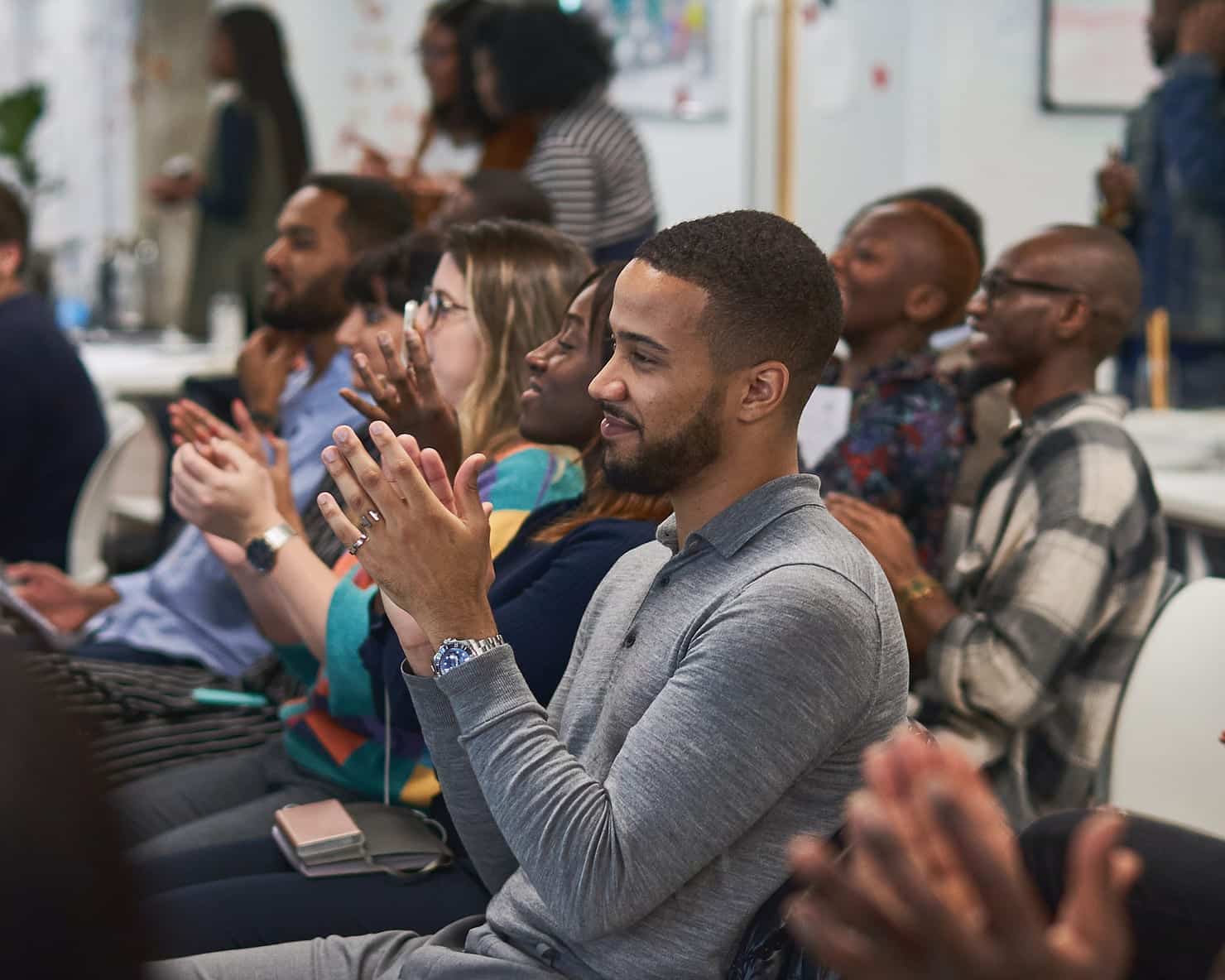
Tell us about the events that Foundervine host and how those are more inclusive than events that people might have attended in the past where they felt very isolated in the room.
The story we hear over and over again is people coming onto our programmes and being like, “Wow, I actually did not know that a start-up environment could look like that.” I had a father who’d brought his son along to one of our events come up to me at the end of it and say, “I could not in my lifetime have looked at a room like this and have heard some of the ideas and the innovation coming out of this room and thought it could exist in London. I’m really proud that I can bring my son here.”
Our core programme is called Startup 54. It’s a three-day start-up acceleration programme designed for people who have very little or no previous experience in entrepreneurship and are between the ages around 18 to 30, although it’s open to everyone. You come in for the first time on a Friday evening to meet others on the programme, and you form teams based around mutual ideas.
Then, you spend the next two days learning about business modelling, customer discovery, pitching, and financial modelling, and then you pitch to actual investors and experts by Sunday evening. We have seen some incredible stories come from the programme, of people who may have just graduated or who are very early in their career and absolutely hate their job, but they come out of the programme and discover a new passion and learn skills in entrepreneurship.
What’s key to our programmes is that we always run them in partnership with corporate partners, because we want to give these young people the opportunity to be in an impressive, buzzy office and to meet mentors from these companies that they would not normally have access to. We worked with Monzo Bank and – for a lot of people – it’s their first time being in an office space like that and seeing a company where they think, “Hey, I can actually work here” afterwards. That’s really important.
For the first time this year, we’ve launched our under 18’s Entrepreneur Challenge Day. We had 20 young people from disadvantaged backgrounds through YMCA Bedfordshire come to PwC Cambridge for a day. They got to tell PwC Cambridge how they could fix a client problem. They were all 12 and 13 year olds and it was amazing to watch.
We’ll be running that same programme again soon with Shell Foundation, where kids from the townships in South Africa will come to the UK and work on a client challenge around sustainability and present it to Shell. Creating those kinds of opportunities… it’s really exciting to be part of.
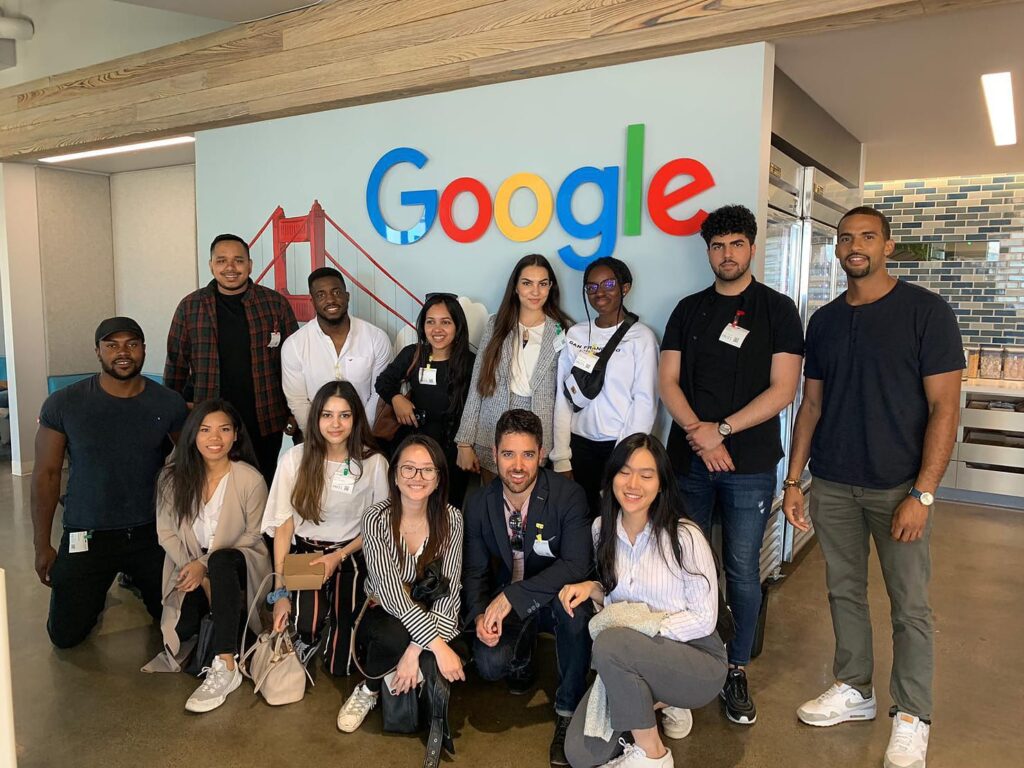
How do you choose the companies that you want to partner with, what kind of values do you look for? What can a company stand to gain from partnering with Foundervine?
It’s been an interesting one, finding partners for our programmes. We find a lot that we’re bringing people in as mentors or speakers for events, and that ends up leading to future partnerships and relationships. It’s been fantastic to see the energy within employees and organisations that really want an opportunity to take part in our initiatives.
There are a few ways that working with us can help organisations. First and foremost, diversity and inclusion is a huge challenge for organisations at the moment, and diversity isn’t just a ‘nice-to-have’… The way that the world is going, that diversity of thought, that ability to have multiple voices in the room, sharing new and different perspectives, it’s really, really important.
So, to companies I would say, rather than having a D&I ‘lecture day’ where your senior executives talk at employees, why not take the opportunity to harness all of the passion and energy amongst your employees, and bring a group of brilliant, talented future employees into your offices to build start-ups related to your industry? It’s bound to give you innovative ideas as well. It seems almost ‘CSR on steroids’ what we do. It’s a great opportunity for these organisations to be associated with an initiative that is doing so much to break down boundaries. But also from a purely recruitment and talent development angle, you’re able to both get future employees into the office and upskill your current employees on mentoring and speaking as well.
It fills a gap for these companies. It’s also great marketing and PR for them because we have a very strong network and have been featured in some really cool publications. We did an event with Monzo, they were in the Sunday Times the following weekend. We did an event with Just Eat, they were featured in TechSpark. We were on the BBC talking about the work we’re doing. By working with us, companies can boost their image and join in on this conversation about the future of talent and business.
“It’s so important to us to make sure that we’re not just going in and doing something that has been done before. This is real: the ability to impact lives, to actually make a change. It’s been very straightforward explaining the benefits to the companies that we partner with. It’s great for them and it’s great for us.”
For anyone wanting to start up a business but feeling like they don’t have the right information or network, where should they go to get support from Foundervine?
If there is a young person who’s interested in being involved, there’s a form on our website where you can sign up to join the community. Our amazing community manager will add you to our newsletter and also to our WhatsApp community, which is a group of about 200 founders who are constantly swapping ideas, opportunities, and news. You can also follow us on social media where we showcase all of our programmes and events.
We’ve also got Startup 54: Africa Tech, our next start-up building programme running on the 18th to the 20th of October at Travers Smith in London. Or for scale-ups already generating revenue and seeking investment, we have our Cornerstone programme running this October at Level39 in Canary Wharf – there’s always a lot to get involved in when it comes to us!
The first step is signing up to be a member or following us on social media, until you’re ready to join an event or programme.


